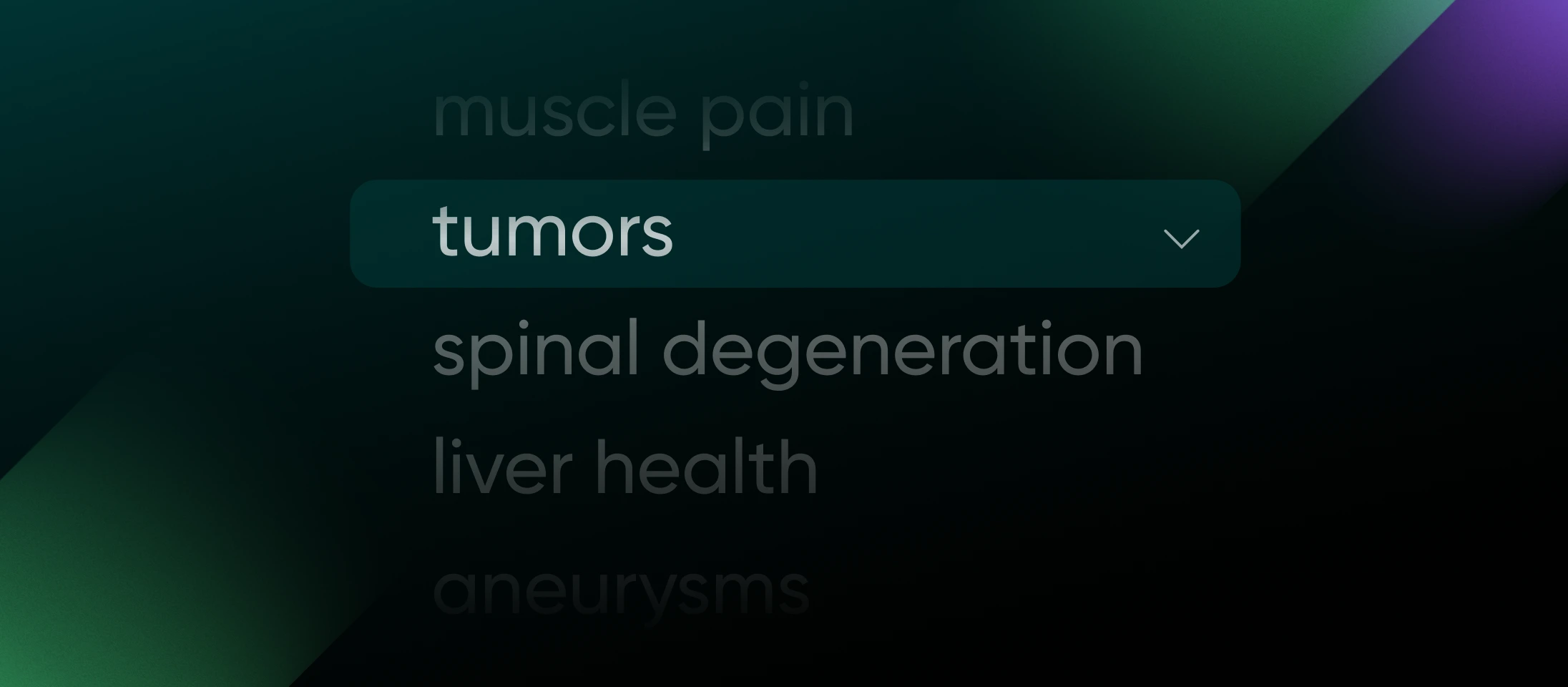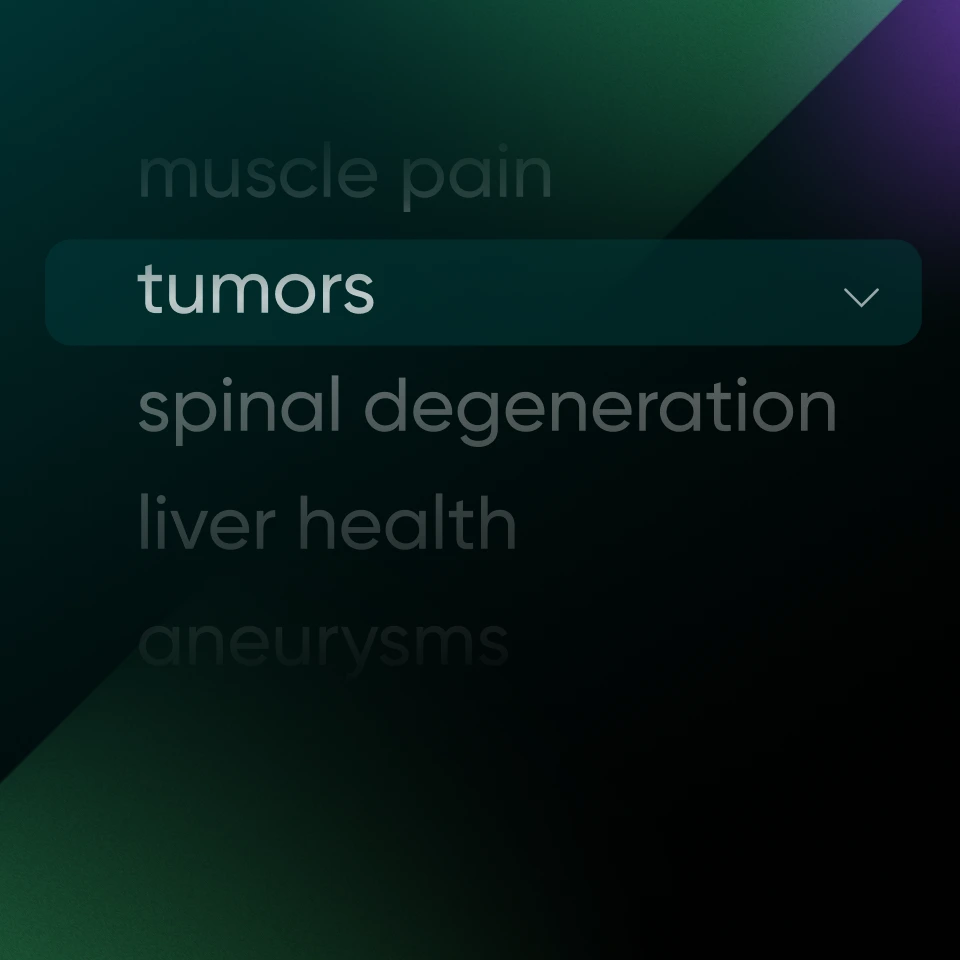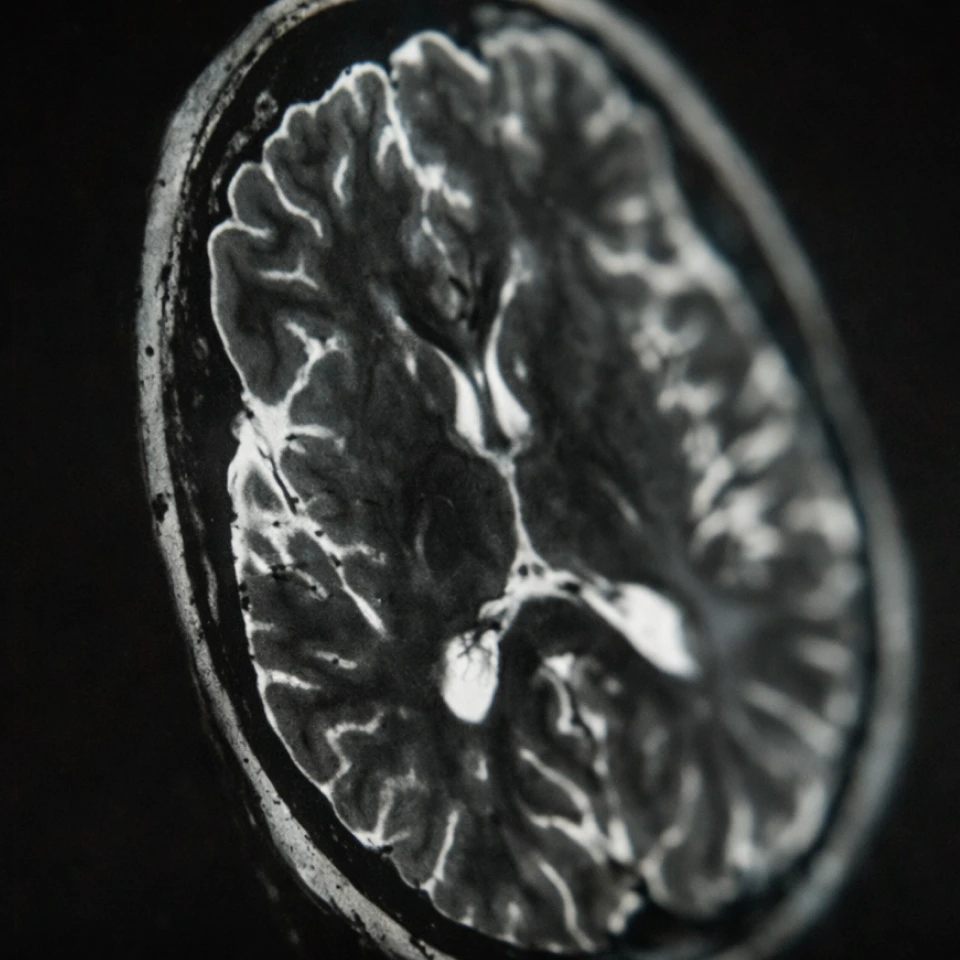You go to your physician for your physical and keep up with recommended screenings—but these annual exams can only uncover so much. For instance, statistics show that when it comes to cancer, 86% of cases are not detected through routine screenings or don’t have any recommended screening at all. In fact, only four types of cancer have recommended screenings, such as mammograms and colonoscopies.
While it’s important to follow your doctor’s advice on keeping up with these exams, it’s also possible to take your health into your own hands and seek out further explanations as to what may be going on inside you. That’s why more people are turning to whole body MRIs which offers a comprehensive approach to proactive health monitoring.
You may be curious about whole body MRIs after seeing them talked about on social media. And if you mention Prenuvo to a friend, it’s likely they know someone who has undergone one. As proactive healthcare becomes the new norm, whole body MRIs are emerging as a powerful tool to help people catch certain conditions early—often before symptoms appear.
But what exactly can a whole body MRI like Prenuvo’s detect—and what can’t it? Read on for more.
First off, how do whole body MRIs work?
Whole body MRIs use powerful magnets and radio waves to create detailed images of your internal organs, soft tissues, spine, and brain. This is all accomplished in under one hour, and unlike other imaging technologies, whole body MRIs are performed without radiation or injected contrast dye.
While X-rays, CT scans, and hospital MRIs are typically ordered to investigate a specific symptom or region of the body, Prenuvo scans are designed for early insight. Prenuvo’s whole body MRI scan looks for hundreds of conditions and can help detect certain conditions from aneurysms to spine degeneration and cancers as early as stage 1 – often even before symptoms appear. If certain conditions are detected early, you can get ahead of potential health concerns early. Prenuvo scans can provide a comprehensive whole body report of actionable information you can use to live a healthier life.
Prenuvo’s advanced scans work alongside the latest in AI, plus patient scans are read by board-certified radiologists.
Related: What are the different types of medical imaging?
Here’s a deeper look into some of the things that Prenuvo can help detect
Brain & Nervous System
- Brain health: Prenuvo’s whole body scan can be used to help assess brain health by capturing insights related to brain volume, white matter changes, blood flow patterns, and markers that may be associated with certain neurological conditions. It may also help identify certain abnormalities that warrant further clinical evaluation, including those seen in conditions like Multiple Sclerosis.
- Aneurysms: An aneurysm is a bulge in a weakened blood vessel in or around the brain. Only 41% of aneurysms cause symptoms. But left untreated, some brain aneurysms can burst, leading to a stroke, brain damage, coma or even death. Caught early, aneurysms can be treated—or Prenuvo can help provide patients with information that can be discussed with their healthcare provider to assist with treatment and monitoring over time.
- Brain tumors: A whole body MRI has the ability to help detect both benign (non-cancerous) and malignant (cancerous) growths in the brain. Catching brain tumors early may allow for more treatment options that could lead to better outcomes.
- Spinal cord issues: This includes tumors, cysts, or abnormalities pressing on the spinal cord. Identifying these conditions in earlier stages can help to prevent situations like nerve damage before symptoms like weakness or numbness begin.
Related: Everything you need to know about brain tumors
Lungs & Respiratory
- Lung nodules: Only 18% of the population qualifies for routine lung cancer screenings – mainly high risk individuals who are heavy past or current smokers. Prenuvo can help detect small masses (starting at 1cm) or identifying spots on the lungs that could be early indicators of lung cancer in people without symptoms who are deemed low risk (no family history and never smoked).
- Sinus conditions: Prenuvo can help get to the bottom of sinus issues, checking for a deviated septum, nasal polyps, sinusitis, as well as inflammation, cysts, and lesions of the sinuses.
- Signs of lung disease: Whole body MRIs can help reveal patterns in lung tissue that may indicate conditions like chronic obstructive pulmonary disease (COPD) or pulmonary fibrosis—even before symptoms like coughing or shortness of breath arise.
Abdominal & Digestive Organs
- Liver disease: Prenuvo’s MRI can help identify early signs of liver conditions like non-alcoholic fatty liver disease, fibrosis, or cirrhosis—sometimes even before typical liver function tests show abnormalities.
- Pancreatic tumors: Due to its asymptomatic tendencies, 80% of pancreatic cancer cases are diagnosed in later stages that are either more difficult to treat or are unable to be treated at all. Prenuvo can help detect pancreatic tumors while they’re still small and easier to treat.
- Kidney tumors: Many kidney tumors don’t have noticeable symptoms in their early stages. Prenuvo can help detect these growths before they become problematic.
- Gallstones: These hardened deposits of bile can form in the gallbladder, ranging in size from a grain of sand to a golfball. Many people with gallstones don’t show symptoms. While not always dangerous, they can lead to blocked pancreatic or ducts, gallbladder inflammation, and an increased risk of gallbladder cancer.
Related: Maria Menounos survives pancreatic cancer, detected early with Prenuvo scan
Musculoskeletal & Spine
- Disc herniations: Bulging or herniated discs can press on nerves and lead to back pain, numbness, or sciatica. Detecting disc herniations early can help you manage symptoms before they interfere with daily life.
- Bone tumors: Prenuvo can help reveal both benign (non-cancerous) and malignant bone tumors, allowing for early intervention.
- Degenerative spine issues: A sedentary lifestyle, poor postural habits, and everyday wear and tear on the body can lead to disc breakdown. By age 60, 9 out of 10 people show signs of disc degeneration. Prenuvo can help to identify the signs so you can seek treatment early, like physical therapy and exercise modifications to avoid pain and further complications down the line.
Related: Do you sit most of your day? You probably have spinal degeneration
Endocrine System
- Thyroid nodules and tumors: Small growths in the thyroid gland are very common, with up to 60% of adults having at least one nodule. While most are benign, Prenuvo can help identify suspicious nodules that may warrant follow-up with an endocrinologist.
- Adrenal tumors: These growths on the adrenal glands are typically benign but can sometimes affect hormone production, potentially causing symptoms like high blood pressure, weight gain, easy bruising, or fatigue. Identifying and monitoring these tumors can prevent complications.
- Pituitary tumors: These are growths at the base of the brain in the small pea size area known as the pituitary gland. Often benign, these tumors can interfere with hormone regulation, potentially affecting growth, metabolism, or reproductive health. A whole body scan can help to identify them before they cause such symptoms.
Reproductive System
For women:
- Uterine fibroids: Non-cancerous growths in the uterus, fibroids are often asymptomatic but can sometimes cause heavy periods, pelvic pain, or fertility issues. Detection can lead to treatment that can mitigate some of these effects.
- Ovarian cysts and tumors: Many ovarian tumors don’t cause symptoms in early stages. Prenuvo can help to identify suspicious cysts or masses, which can prompt further evaluation for ovarian cancer or other conditions.
- Endometriosis: While MRI isn’t the gold standard for diagnosing endometriosis, Prenuvo’s scan can sometimes help reveal structural changes that may lead your doctor to recommend further testing.
Related: The most common health misdiagnosis in women—and why they keep happening
For men:
- Prostate enlargement or tumors: Prenuvo’s Enhanced Screening provides a detailed imaging of the prostate, which may help identify abnormalities and the need for a follow-up prostate-specific antigen (PSA) test or urological evaluation to check for prostate cancer.
- Testicular masses: Prenuvo can help detect masses in or around the testicles that may require further diagnostic imaging or examination.
What it won’t detect (and why that matters)
Prenuvo’s whole body MRI is a powerful tool for early detection, but it’s important to note that it does have some diagnostic limitations. Here are a few things that your Prenuvo scan cannot do.
- Doesn’t replace standard screening tests: Prenuvo’s scan does not substitute for routine, guideline-recommended screenings such as mammograms for breast cancer or colonoscopies for colon cancer. These tests are specifically designed to detect certain abnormalities—like tiny colon polyps or early breast tissue changes—that whole body MRI cannot reliably identify. Patients should still follow their doctors’ recommendations for these routine screenings and view Prenuvo as complementary testing—not a replacement for—those exams.
- Can’t detect skin cancers or very small lesions: Skin cancers like melanoma or basal cell carcinoma are best diagnosed by a physician skin exam or dermatological biopsy, as they may only be surface-deep or. In addition, early-stage lesions—especially in the digestive tract—may be too tiny to show clearly on an MRI.
- Not a diagnostic replacement for a physician’s evaluation: Whole body MRI provides detailed images and a more comprehensive report of your internal health, but it doesn’t replace the role of a doctor or prescribed diagnostic exams. A physician provides context, evaluation, and further testing where necessary—including dedicated imaging for diagnostic-quality, focused assessment of areas already under clinical suspicion.
- Doesn’t capture certain biochemical abnormalities on its own: MRI scans focus on the body’s structure, honing in on tissues and organs. But Prenuvo’s Enhanced Screening pairs imaging with advanced lab work for 50 key biomarkers, a body composition analysis, and an advanced neurological assessment—giving you a more comprehensive approach to proactive health monitoring.
What makes Prenuvo different from other MRI providers?
Not all MRIs are created equal. Here’s what sets Prenuvo apart:
- Custom scanning protocols
A doctor-ordered MRI that you receive at a hospital or imaging center is designed to check in on a specific area of the body to diagnose symptoms. For instance, you may have unexplained knee pain and be sent for an MRI to check the cartilage and tendons around your kneecap to see if something may be strained, torn or broken down.
Prenuvo’s whole body scan was designed to help with early detection of certain abnormalities before symptoms. It aims to check your body for hundreds of conditions, looking at major organs, tissues, and bones as a means of helping identify certain conditions in early stages – in many cases even before patients are symptomatic – when they are often easier and most effective to treat.
- AI-assisted analysis + radiologist analyzed
While other providers offer whole body scans, Prenuvo combines advanced imaging technology with expert human insight for an even greater level of precision. Our AI tools assist with tasks like anatomical labeling, image reconstruction, and measurement, helping radiologists work more efficiently. Every scan is then thoroughly reviewed and analyzed by one of our board certified radiologists with experience in whole body imaging.
- No contrast dye, no radiation exposure
Prenuvo uses advanced MRI sequences which means its whole body scans are able to screen without injected contrast agents (which can cause discomfort or allergic reactions). And unlike CT scans or X-rays, it’s done without radiation exposure, making it safe for routine proactive use.
- Designed for proactive health seekers—not patients with symptoms
Most hospital MRIs are reactive—ordered after symptoms appear, when patients are already searching for answers. Prenuvo takes a different approach. Our scans are designed for people who want a more comprehensive approach to proactive health monitoring, going beyond annual checkups to help identify certain abnormalities before they symptoms appear.
Curious about what else Prenuvo can help detect? Explore our Conditions List for a deeper look into hundreds of conditions across every major system of the body.
And to learn more about the benefits of a whole body MRI—and what makes Prenuvo different—book a call with a member of our care team.







.webp)
